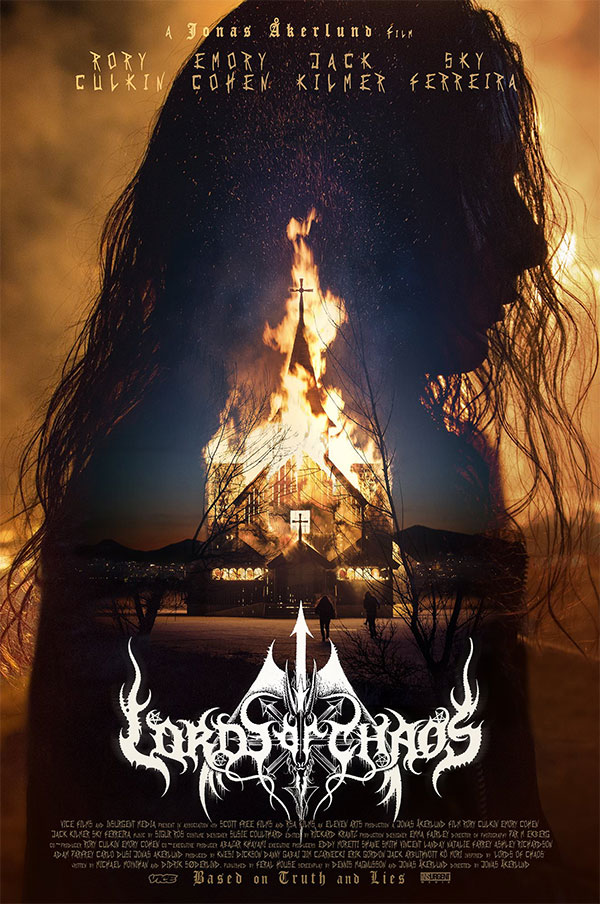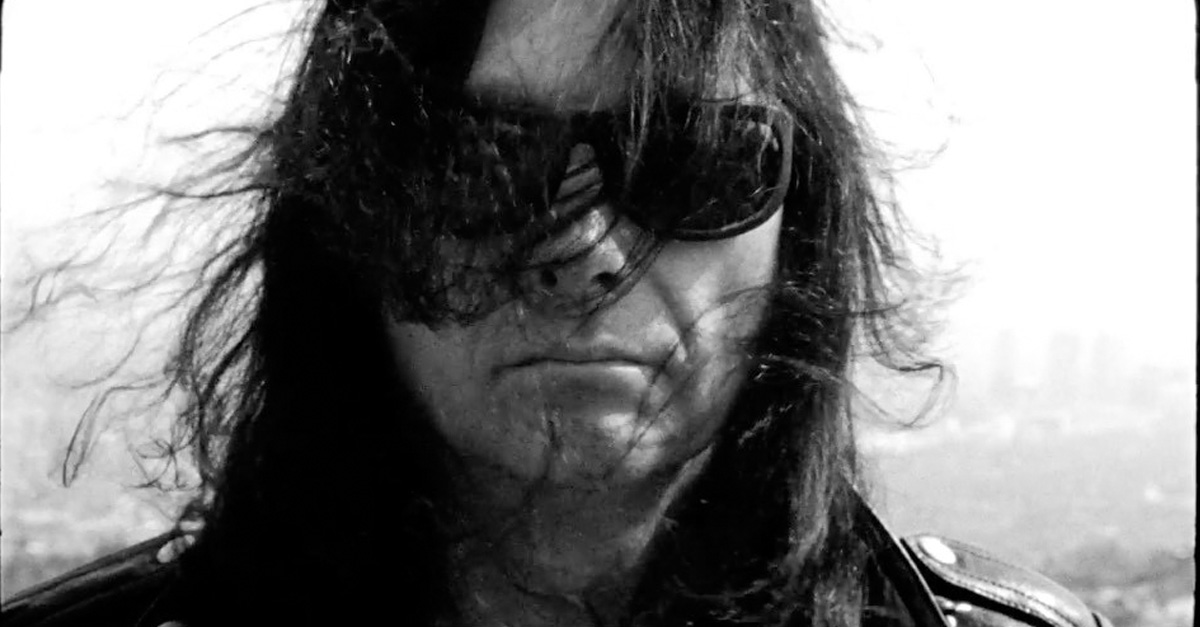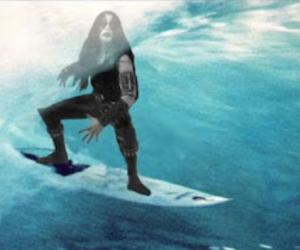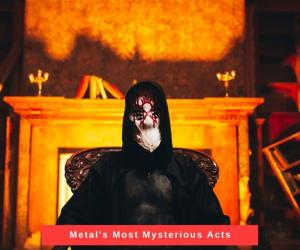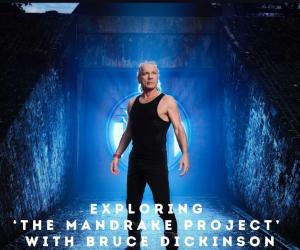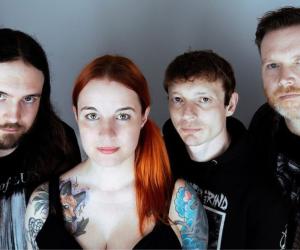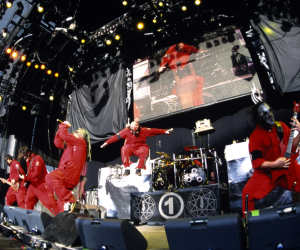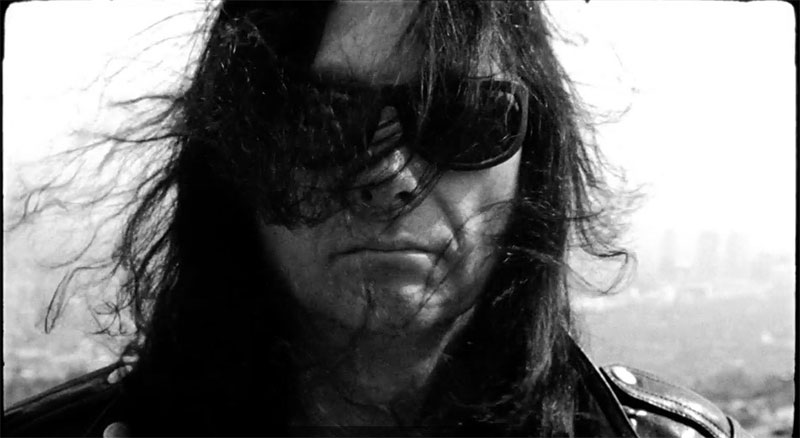
By now you will have heard about and maybe even been lucky enough to see the new film, Lords of Chaos, a true story about the dark and violent black metal scene which terrorised Norway during the early part of the 1990’s.
We were able to speak with writer and director Jonas kerlund and hear his thoughts on the making of the film and what is undoubtedly one of the best music biopics of the year and an absolute must see for metal fans. Check out our interview below!
NICK: Jonas, thanks so much for chatting to us today during what I’m sure is an incredibly busy time for you. We really appreciate you speaking with us.
JONAS: Hi, thank you so much! It’s been so crazy. I’m so sorry I kept you waiting today. I’m also a location scout and I’m shooting here next week so very busy but all good, it’s great to talk to you.
NICK: No problem at all! Your new film Lords of Chaos is the cinematic adaptation of the 1998 book of the same name, which depicts the terrifying rise and fall of the Norwegian black metal scene in the early ’90s. Can you start by telling us a little bit about what inspired you, someone who has himself been involved in the genre, to tell this incredible story?
JONAS: Well, I mean it’s really just one of those stories which stayed with me. I just couldn’t stop thinking about it and I realised as the years were going by that I wasn’t the only one, and there were people all over the world who were fascinated by this story, were taken by the story and felt very attached to the story. Then eventually I realised people that weren’t even born felt the same.
That’s kind of how it started. I mean, there were a few guys in the scene that I knew, I grew up with the music, I am from Sweden and this happened in Norway, but it wasn’t so much that I was close to it, more that I got attached to the story and the emotional side of it and I saw the documentaries and I read all the books like everybody else did. But then as a filmmaker, I started thinking ‘there’s gotta be another layer to this story that we haven’t seen’ and that kind of sparked the idea of writing it.
It took me ten or fifteen years before I got the courage to sit down and write it, then when I eventually did it just sort of poured out of my hands and I realised that this story is more important than I ever thought it would be.
NICK: You’re originally from Sweden as you’ve mentioned, and your early career included a stint in one of the most influential black metal bands of all time, Bathory. Can you speak a little about your time in the band, and how it contributed to your eventual making of the film?
JONAS: Yeah, I take it kinda lightly you know, because I was for a brief moment in the band and I’ve always felt close to the scene not only because of Bathory but because most of my friends were in several of the bands from this era. I left kind of early for film making, I was still in touch with most of my friends, but I became more of a visual guy. Even in Bathory, I was the guy that worked on the logo and our style and the look of it while Ace Quorthon who eventually kept the band going for many, many years after was the real genius.
I’ve never wanted to claim any credit for what Bathory became because that was one hundred per cent him.
But there are parts in the first act of the movie where they’re struggling to find their sound, they colour their hair and they listen to dark music, watch horror movies, they party, they were awkward around girls. Trying to find their way, their style and their look and I can identify with that from when we had Bathory because that’s what it was all about, you know?
NICK: Let’s dive back into your new film, Lords of Chaos. This project is so highly anticipated not only by those in the metal community but by film buffs and music fans the world over, and let me say having seen it last night, it is absolutely worth the wait. Tell me a bit about the actors telling these pivotal characters stories, and how your team decided on the cast because there is such a variety of talent within it. What helped you decide on this group of amazing actors? Are they fans themselves?
JONAS: No, I mean they’re way too young. The only one who knew about the scene and the music was Jack Kilmer, but they’re such talented young actors who had so much to build on. These characters, these real characters were so good at taking pictures and doing interviews and there’s a lot of research material that they [the cast] could work on.
[I had] Rory Culkin on my list for a long time for this project and when he showed interest, I wasn’t sure which character he was connected to, but he fell in love with Euronymous and that was something for me to start to build on. Because what I needed was chemistry between the characters, but especially the three leads.
Then I met Jack specifically for Varg and then when I met him, I was like ‘oh no man he’s way more Per Ohlin [Dead]’. I guess I kinda built from there.
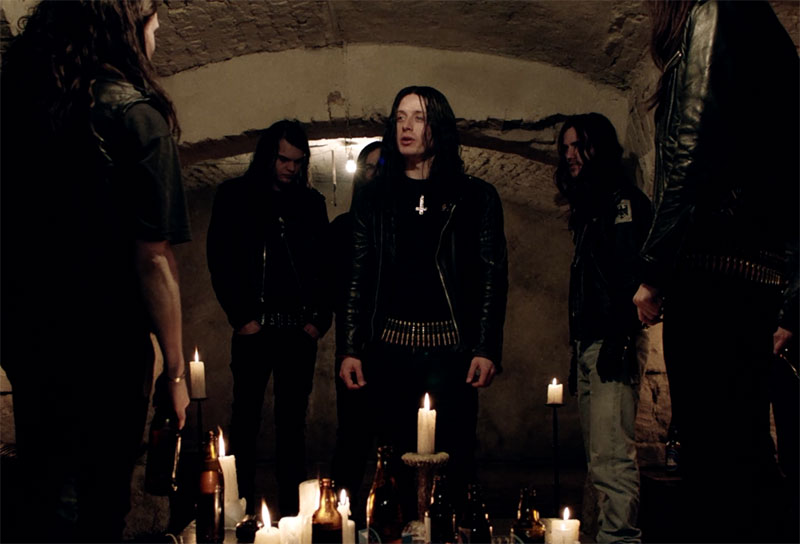
NICK: As someone who has read, watched and listened to everything black metal for some time, I do consider myself a fan but there is still an element of mystery surrounding the genre and the story behind it which makes it an ever-fascinating subject. You’ve said previously that Lords of Chaos has been a 20-year journey for you. What do you believe it is which makes us keep coming back for more when it comes to black metal, and why is this story so captivating?
JONAS: I mean it really beats me and, believe me, I’ve been thinking about it. I went through all these different emotions myself and I literally thought for the longest time that this story was more important to me than anybody else, but then I realised there are so many other people who have exactly the same feeling. I meet people who weren’t even born that think they know more and think they know better and they’re so emotionally attached and, I don’t know. It really beats me, man, because the truth is this happens every day around the world. It happens all the fucking time with kids doing stupid things. It happens in Australia!
Snowtown (Screen Australia, 2011) being one of my favourite movies ever, it’s like we’ve seen this all before where young people stop thinking like individuals and start thinking more like a group, it’s a real thing.
But again, I don’t know what it is, whether it’s the visual part of it or what but one thing which makes me more emotional about it now, more than ever, I keep thinking about how young they were. They were so young, they were children and they made all this mess and it makes me really sad. It’s a really sad story. These young boys didn’t have anything to blame. They had good upbringings, great parents, they weren’t poor, there were no drugs involved. They had everything, these kids and then they just screwed it up.
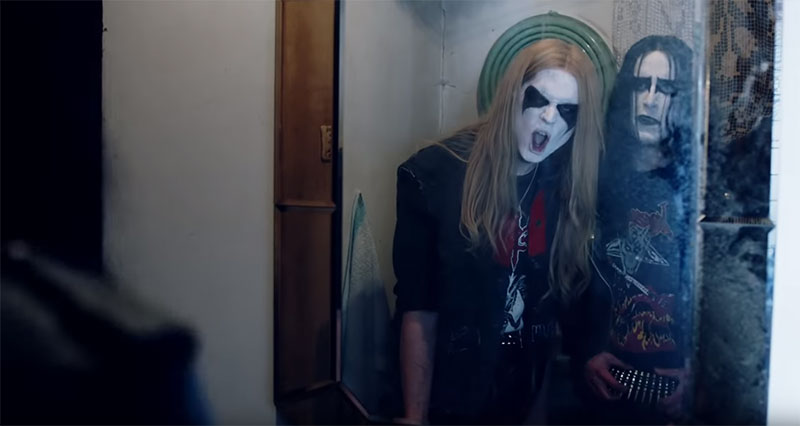
NICK: There has been some well-documented controversy surrounding the film, as there was with the book upon its release, and some key figures from the black metal community, primarily one Varg Vikernes, have commented on and questioned the way in which this story has been told and claimed it is a false characterisation. Is it disappointing for you knowing he is so against this film, or do you feel as though his outspoken attitude has contributed to pique people’s interest, and in turn helped your film’s cause in the long run?
JONAS: I think it’s very expected. I’ve met a lot of people who were against it and hated the idea of this movie up until the point where they saw it and realised why this film is different from all the other portrayals that we’ve seen. But the whole idea of this movie commercialising black metal, and revealing whatever the secrets are, I think that’s just bullshit. I mean, this happened fifteen to twenty years ago when the book and the documentaries and social media came about, they’re all selling merchandise, they’re all touring.
Black metal was commercialised twenty years before this movie even existed. This movie didn’t make any difference other than that it shows the human side of it. All the books and all the documentaries seem to tell us over and over that all the demons and monsters are from Norway, while this movie really shows a more human side to it.
So, I don’t know man, who cares, you know? Black metal is great, I love everything about it, but I love it more from doing this movie and I understand more about it. I don’t think we are taking anything away from the integrity of the art by showing this movie. I really don’t.
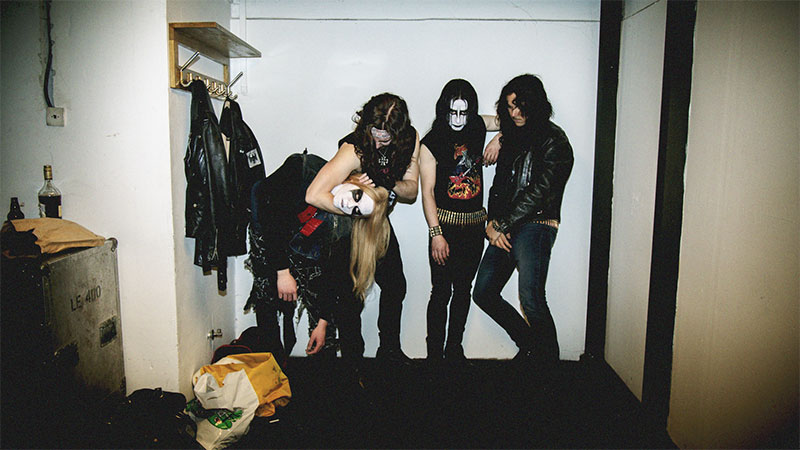
NICK: The graphic nature of the violence committed during the film, especially relating to Dead, Faust and the film’s vicious climax, as well as the infamous church burnings is a cinematic triumph and terrifyingly real. You’re no stranger to controversial subject matter, but this is something different entirely and very unique. Tell us what it was like filming those scenes, and how did you manage to capture the aura of carnage, brutality and mayhem so brilliantly?
JONAS: Well this comes up a lot in interviews and I realised just writing the story that the violence is such an important part of it. My attitude towards it was to do as much research as I possibly can and really try to be as close to the reality of what happened as I could. So when it came to the violent scenes I didn’t see a difference, I wanted it to be as real as it could be.
With police investigations available, and hearing the stories over and over again, especially Varg telling the story about the murder [of Euronymous] over and over again, he told it so many times, I felt like I had enough material and information to make it as close to reality as I could. I feel like I needed to, and I feel like it’s such a big part of this story and I feel like it has such a sharp turn.
It’s the saddest story you’ve ever heard and then at the same time it’s kind of funny that they’re taking themselves so seriously, but they’re young and having fun, and there is that aspect to rock and roll and being young. Then there’s all this dark and sad stuff, so my take on it was without these sharp turns and violent scenes the movie is just going to fall flat.
NICK: Lords of Chaos is a film which descends quickly into darkness and subjects of suicide and depression. Without giving too much away, the death of Per Ohlin is a reoccurring image throughout the film and one which has clearly affected Oystein Aarseth in ways which maybe aren’t so obvious. From a personal perspective, the film helped me see Ohlin’s demise as one which directly contributed to Euronymous’ struggles throughout the rest of his life and shows us the more soulful, human side to a story which is primarily drenched in violence. Would you agree?
JONAS: Yeah, I agree with it. I mean, I don’t think that Euronymous was a saint. I think that he holds a big part of the responsibility for everything that happened. But I do know one thing for a fact: that he was very attached to Per Ohlin. I know that it seemed like he took his death very lightly, taking those horrible pictures. I hate those pictures and I hate him for doing it. I don’t understand what was going on in his head, but he did it, and I think that it haunted him.
Not only the death of Per Ohlin as a friend, and losing a friend, but also the fact that he took those pictures, it must have haunted him. It must’ve, unless you’re a full-on psychopath, which I don’t believe he was. It’s impossible to go through life without being affected by something like that. I really felt like that needed to be a key part of the story, and part of his journey. He definitely did think about it. You don’t find your best friend’s body and just let it pass as nothing.
NICK: For someone who appeared quite meek early on, Euronymous quickly showed us that he was a man who craved the attention and love of his followers and yearned for a platform, which was in direct contrast to Vikernes’ outlandish taste for the truly extreme. Have you always viewed him as the central figure of the black metal story, or is there something else at the heart of it all?
JONAS: I think so. To be honest there are so many interesting stories in this whole world [of black metal]. If I was to have done a TV series instead of a movie I would have done an hour on Darkthrone, I would’ve done an hour on Slayer Magazine I would’ve done an hour on their parents and the upbringing, the Swedish metal scene versus the Norwegian metal scene, I would’ve done an hour on the police investigation and the trail. There’re so many interesting characters and fascinating stories but I couldn’t fit it into this movie.
I do believe that through Helvete [Euronymous’ record store in Oslo] and Deathlike Silence, and the death of Per Ohlin and taking those pictures, he became the creator of true Norwegian black metal. He couldn’t have done it without a lot of other people obviously, but he was a little bit of a self-proclaimed leader, while I’ve also met a lot of people who say he wasn’t. That kind of led to me making Euronymous the main guy in my film.
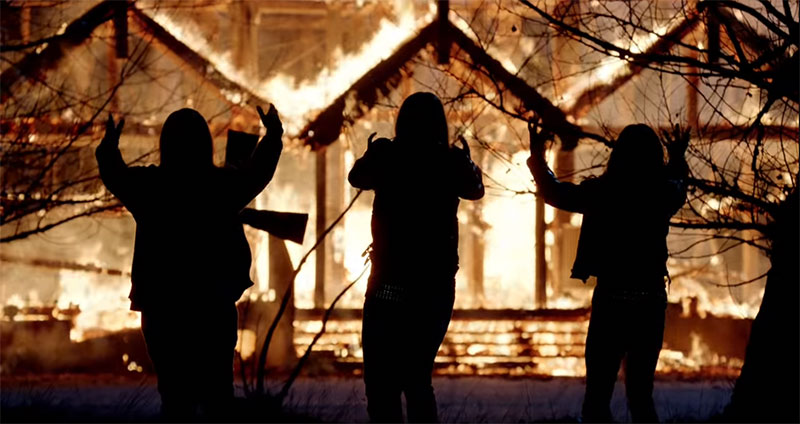
NICK: Unfortunately we’ve run out of time but just finally, you’ve worked with some amazing artists from Madonna to The Prodigy and Roxette to Metallica. Who are some artists, metal or otherwise which you’re listening to nowadays, and what can we expect from the great Jonas kerlund in the future?
JONAS: Oh wow, I don’t know! On the metal side right now, I’m always old school. I’m always listening to old metal mostly seventies. [Black] Sabbath is always in my life, and all that stuff but I also really like Ghost a lot. Their new stuff is amazing. There are a few new things coming which I really like.
As far as other projects, I have finished my other movie Polar which came out on Netflix a couple of weeks ago, which I actually shot after Lords of Chaos, so that’s out, but right now I’m working with Rammstein on some videos for their new album.
NICK: Well, I’m sure we’ll have some readers who will be thrilled to hear that. Thank you again for taking the time out today to speak with us – wishing you the very best of luck with the release of Lords of Chaos. I absolutely loved it and I’m sure the masses will also!
JONAS: Oh great, thank you so much and again, I’m sorry to keep you waiting!
Lords Of Chaos premiers Friday, February 22nd in selected cinemas around Australia.
Nick C.
